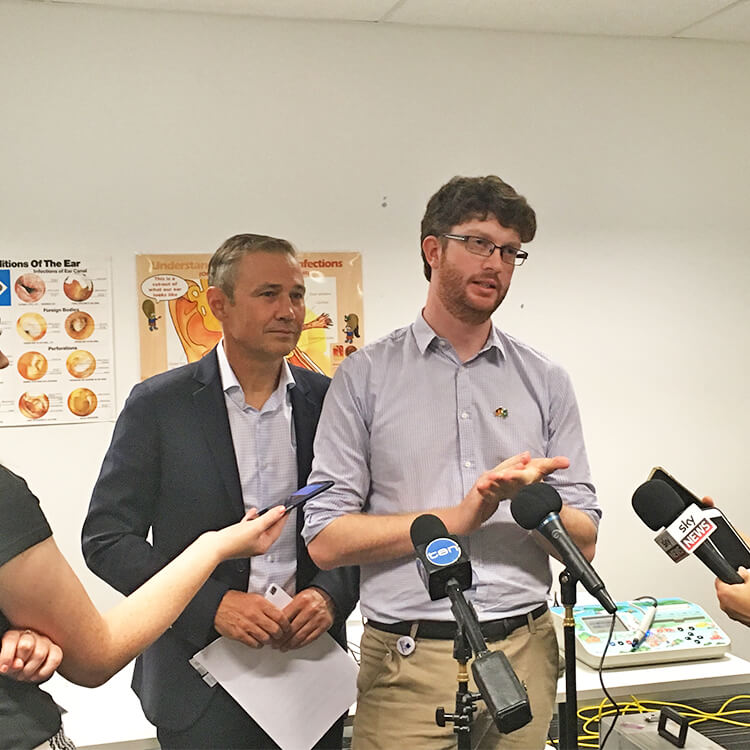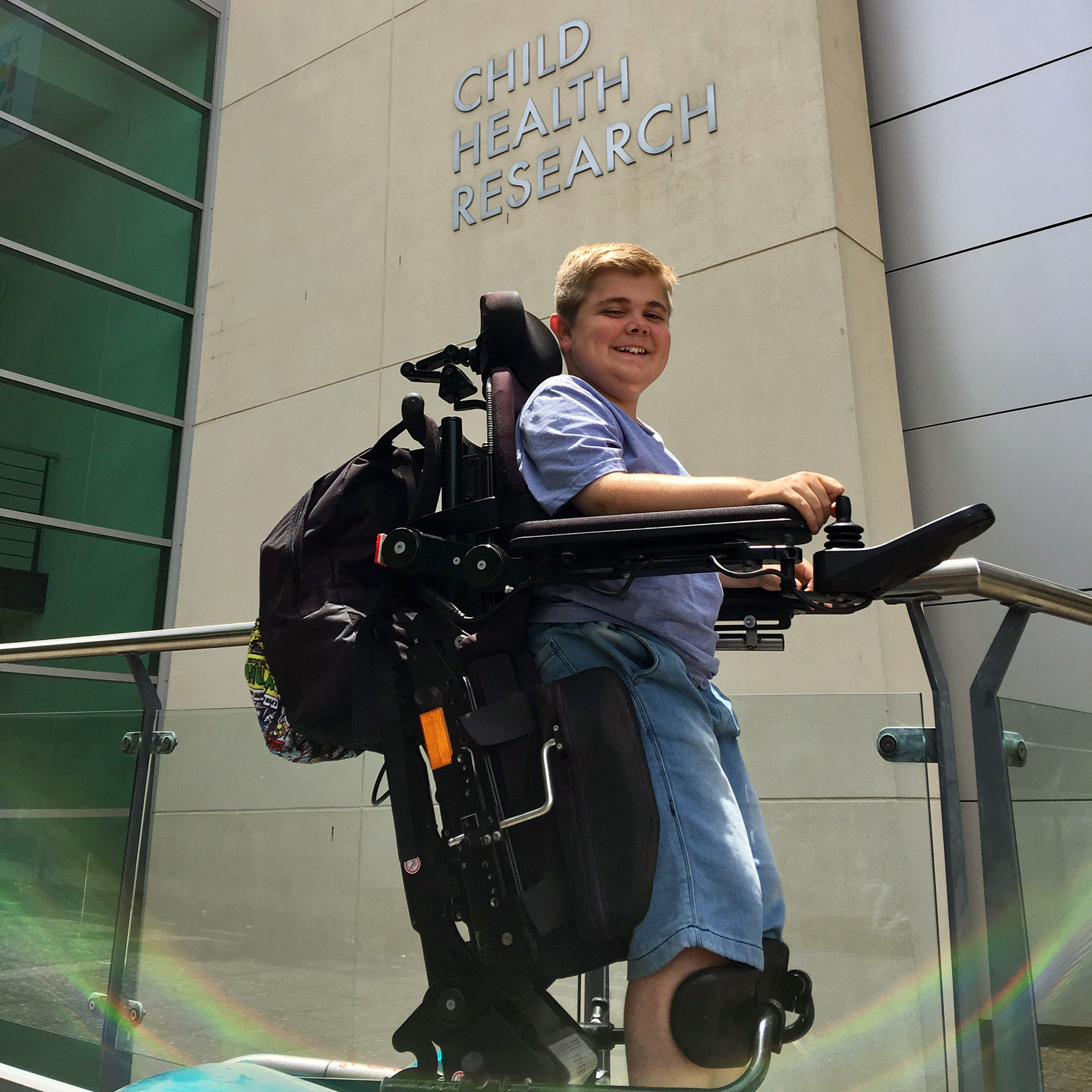Search
Showing results for "Au"

News & Events
Global organisation backs Strep A vaccineA global philanthropic organisation has backed an Australian-led bid to develop a Strep A vaccine which could save millions of lives around the world.

News & Events
New ear health study music to the ears of Aboriginal childrenWait times for Aboriginal children suffering ear infections could be reduced to less than four weeks thanks to a new The Kids Research Institute Australia research project

News & Events
Funding to support research into the impact of standing wheelchairsThe Kids researchers are investigating the physical and psychological impacts of powered standing wheelchairs for boys suffering from Duchenne
Research
Community and Food Environments studyGina Nicole Trapp Hanna BHSc(Hons1A), RPHNutr, PhD BHlthSc (Hons) Honorary Research Associate Program Manager 08 6319 1033 Gina.Trapp@thekids.org.au
Research
Altered immunity and dendritic cell activity in the periphery of mice after long-term engraftment with bone marrow from ultraviolet-irradiated miceTo investigate the immune capabilities of peripheral tissue DCs generated in vivo from the BM of UV-irradiated mice, chimeric mice were established.
Research
ARIEL studyThis study will test the hypothesis that the mechanisms of childhood asthma begin in the respiratory tract as early as birth.
Research
Characterizing predictors of response to behavioral interventions for children with autism spectrum disorder: A meta-analytic approachA comprehensive understanding of specific factors contributing to variability in responsiveness of children with autism to interventions is paramount for making evidence-based clinical and policy decisions. This meta-analysis examined child and family characteristics, as well as intervention design factors, associated with outcomes of behavioral interventions for children with autism.
Research
"What about us?"- the drawbacks of current bruxism assessment criteria in evaluating vulnerable groupsJenny Helen Kingsley Downs Leonard Wong BApplSci (physio) MSc PhD MBChB MPH MBBS, MPH, MMedStat Head, Child Disability Principal Research Fellow
Research
Mental health profiles and academic achievement in Australian school studentsThis study explored mental health profiles in Australian school students using indicators of well-being (i.e., optimism, life satisfaction, and happiness) and psychological distress (i.e., sadness and worries). The sample included 75,757 students (ages 8-18 years) who completed the 2019 South Australian Wellbeing and Engagement Collection.
Research
Thoracic Society of Australia and New Zealand position statement: The safe clinical use of sputum induction for bio-sampling of the lower airways in children and adultsSputum induction is widely used in clinical settings for collection of biological samples from the lower airways. However, in recent years sputum induction has been associated with serious adverse events and even death. This position statement was commissioned by the Thoracic Society of Australia and New Zealand to address major adverse events of two deaths associated with sputum induction that have occurred in Australia in 2021, and outlines best practice for the safe use of sputum induction.
